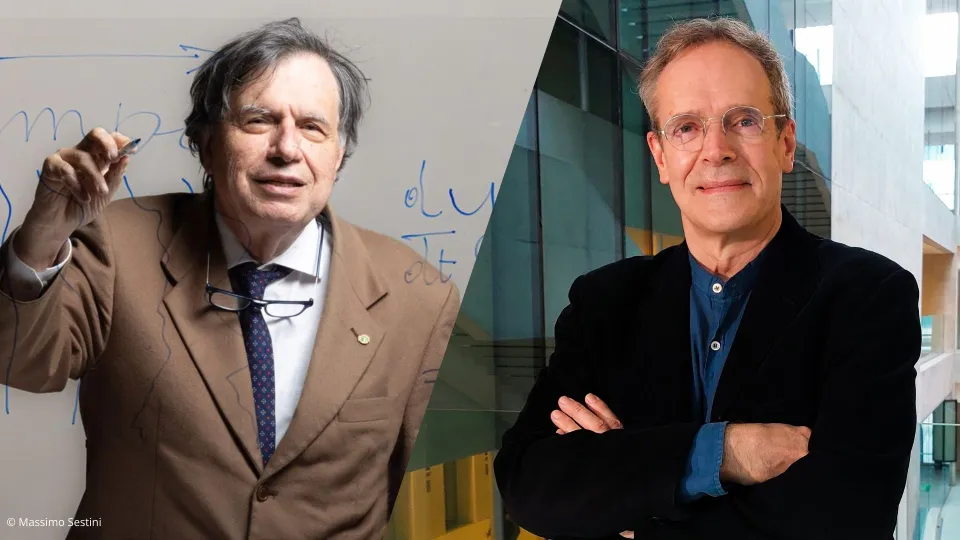
Physics and Artificial Intelligence: When the laws of nature meet the digital future
What does particle physics have to do with ChatGPT? And how can the laws that rule the behavior of matter help us understand how artificial intelligences reason — or at least how they “work”? Some answers to these questions may come from world-renowned French theoretical physicist Marc Mézard, new holder of the Romeo and Enrica Invernizzi Chair in Computer Science at Bocconi.
His inaugural lecture, titled When Physics Meets AI. Can We Use Physics Concepts to Construct a Theory of Artificial Intelligence?, will be held on Sept. 25 at 6:15pm in the Auditorium Grande of the SDA Bocconi School of Management. After addresses from Rector Francesco Billari and Fondazione Invernizzi President Giuseppe Bertoni, Mézard will converse with Giorgio Parisi, Nobel Laureate in Physics, in a discussion moderated by Corriere della Sera journalist Paola Pica. Concluding remarks will be by Bocconi President Andrea Sironi.
The professorship, established in 2022 thanks to the support of the Fondazione Invernizzi, was originally held by Luca Trevisan, an internationally renowned computer scientist who until his untimely death in 2024 had been able to interweave in his courses the rigorous analysis of algorithms with the ethical and social dilemmas of new technologies, from blockchain to data security.
With Mézard, former director of the École Normale Supérieure in Paris and now a full professor at Bocconi, there will be an even more interdisciplinary perspective. “Modern artificial intelligence,” Mézard explains, is “a collective phenomenon, made up of millions of simple units that together generate emergent properties. This is exactly what we study in statistical physics: how complex behavior can arise from the interaction of so many elements. Understanding this is crucial, both for advancing science and for governing technology.”
“With the Invernizzi Foundation,” Bertoni explains, “we established this chair in 2022, in the belief that artificial intelligence represents a strategic resource for scientific and community progress. It needs to be approached with confidence, critical spirit and ethical sense, avoiding both easy enthusiasm and unfounded prejudices. I am confident that Professor Marc Mézard will be able to embody these values in his work at the Invernizzi Chair and that he will embark on this journey with competence and vision.”
A member of the Accademia dei Lincei and the French Académie des Sciences, with more than 34,000 scientific citations, and winner along with Parisi and Riccardo Zecchina of the American Physical Society's Onsager Prize, Mézard sees AI as a field of research that concerns not only the digital but also the human brain: “Studying how artificial neural networks learn also means getting closer to better understanding how our brains solve problems.”
This is an event that marks the start of a new season of research at Bocconi: physics meets artificial intelligence, and science gets to work deciphering the future.